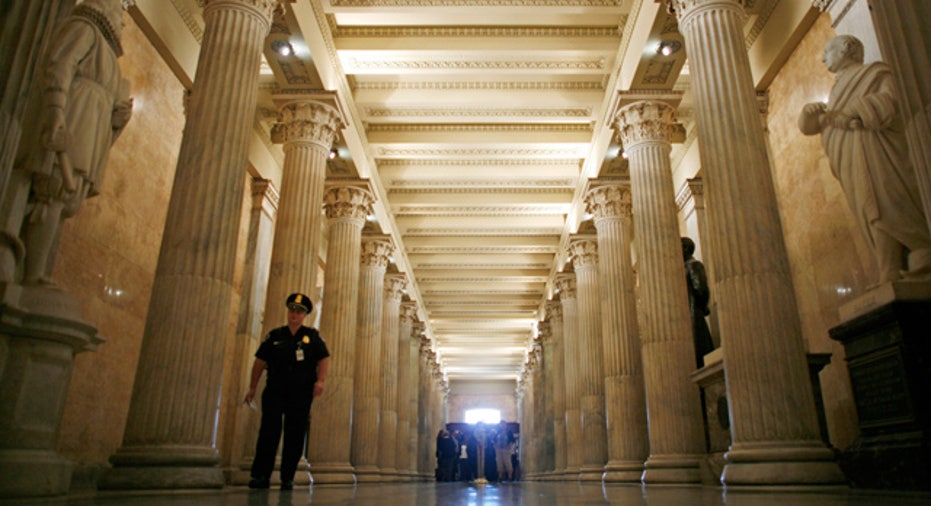Senate Passes Fiscal Cliff Bill

– The Senate passed a bill early Tuesday aimed at averting the effects of the fiscal cliff after marathon year-end negotiations.
The vote, which passed by a margin of 89-to-8, came just hours after the New Year’s deadline. The bill now heads to the House of Representatives where it could face stiff resistance from conservative members.
Tax Policy
The bill delays sequestration – a series of painful automatic spending cuts – for just two months. The move buys lawmakers more time, but doesn’t provide a long-term solution as was hoped for at the onset of negotiations.
The deal also includes a tax increase on America’s high earners – an issue that was hotly contested in budget talks. Single filers making more than $400,000 and joint filers making more than $450,000 will see the tax rate on the top portion of their incomes increase from 39.6%. The rates will remain the same on individuals and joint filers earning incomes below those thresholds. Additionally, the bill provides a permanent fix to the alternative minimum tax. Taxes on capital gains taxes and dividends for high earners also increase from 15% to 20% (plus a 3.8% surcharge from the Affordable Care Act).
In addition to increased tax rates and delayed sequestration, the Senate bill also allows the expiration of the temporary payroll tax cut, which would now require every American to pay an additional 2% in payroll taxes. Also included is an extension of current policy regarding the estate tax, but adding a $5 million exemption indexed for inflation and a 40% top rate.
Spending Policy
Not included in the Senate bill is an option to increase the U.S. debt limit, leaving the ceiling at $16.394 trillion. The Treasury Department is taking on “extraordinary measures” that are forecast to keep Congress from having to raise the ceiling until about February.
Under the Senate’s bill, sequestration is delayed for two months, paid for by a reduction in discretionary spending cap for 2013 and 2014. Also included is a one year extension of extended unemployment insurance benefits, and a one-year extension of the Food, Conservation and Energy Act of 2008 – also known as the farm bill. The latter will counteract antiquated legislation that economists have said could cause milk prices to surge to as much as $8 a gallon.
Political Ramifications
Shortly after the bill’s passage, the White House released a statement acknowledging neither Republicans nor Democrats got exactly what they wanted, but praising the Senate for reaching an agreement on a solution to the fiscal cliff and urging the House to pass it without delay.
“Tonight’s agreement ensures that, going forward, we will continue to reduce the deficit through a combination of new spending cuts and new revenues from the wealthiest Americans,” the statement said.
Senate Minority Leader Mitch McConnell echoed the president’s sentiment that the agreement will stave off financial pain for many Americans, but also highlighted the imperfections in the plan.
“Each of us could spend the rest of the week discussing what a perfect solution would have looked like, but the end result would have been the largest tax increase in American history,” he said.
“So it took an imperfect solution to prevent our constituents from very real financial pain. But in my view, it was worth the effort.”
The House is set to convene at noon ET Tuesday.
Rich Edson and Chad Pergram contributed reporting from Washington, D.C.



















